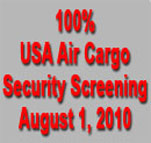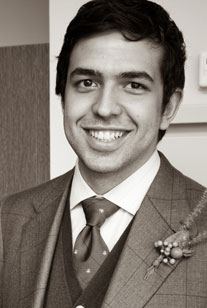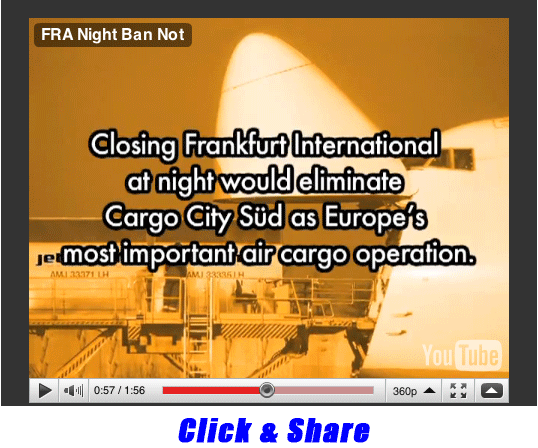| 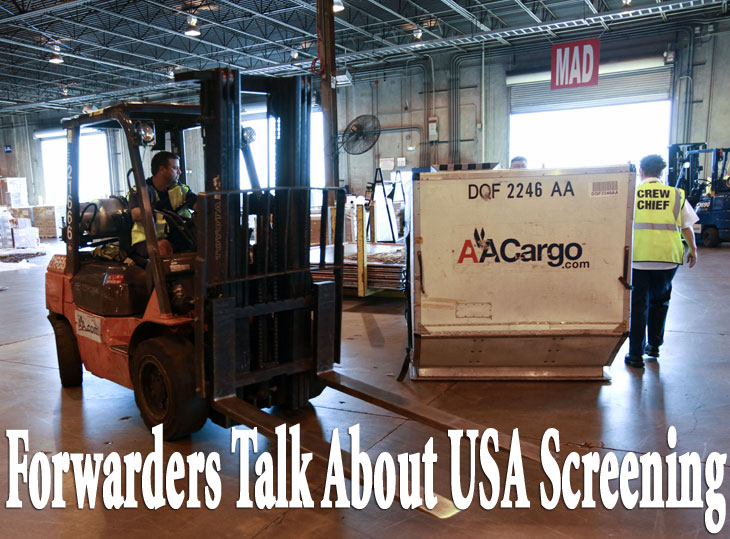
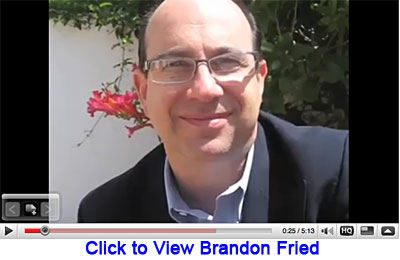 Mensch·es,
or mensch·en (m_n'sh_n). Mensch·es,
or mensch·en (m_n'sh_n).
The word mensch is defined as a person
having admirable characteristics, such as fortitude and firmness
of purpose:
"He radiates the kind of fundamental
decency that has a name in Yiddish; he's a mensch," says James
Atlas on the web.
The “he” we are talking
about here is the ambitious, hard driving President of the U.S.
Airforwarders Association, Brandon Fried.
Brandon has been all over next Sunday’s
mandated 100 percent screening of all U.S.A. belly air cargo like
white on rice.
In fact, there is positively nowhere this guy has not been when
it comes to discussions about the 100 percent mandate. From Lufthansa’s
classy Air Cargo Security Seminar in East Meadow, New York earlier
this year to the CNS Conference to the recent hearings by that U.S.
Sub Committee in Washington, D.C. last month and maybe two dozen
other venues held far and wide, Brandon has visited them all and
nobody in attendance was left with the slightest doubt of the air
forwarders’ stake and position pertaining to security.
It is no mistake that the Airforwarders
Association has its main offices just a stone’s throw from
the seat of government in USA.
The job of the President of that group
has always been about lobbying to some degree and bringing the group
together to speak with one voice over various subjects, as well
as to conduct the group’s big annual convention held every
year.
But for our money, no President of
AFA has brought the energy, vitality or concentration of purpose
as its mensch, Brandon Fried.
In 2010, with chips on the table and
uncertainty, politics and huge investments in security having descended
upon an industry already rocked by reduced business, forwarders
in critical need of a voice can be thankful that Brandon Fried was
the right guy in the right place at the right time.
Brandon, it turns out, just may have
had his ticket punched for air cargo immortality and a paid trip
into the Air Cargo Hall Of Fame.
But first things first, as less than
72 hours from now, U.S.A. air cargo will change forever.
We spoke to Brandon earlier this week
for his take on what lies ahead.
 What
do you think will happen as 100 percent screening begins? What
do you think will happen as 100 percent screening begins?
 While
we may see pockets of delays and confusion, these will most likely
be found at the gateway airports handling wide body flights. While
we may see pockets of delays and confusion, these will most likely
be found at the gateway airports handling wide body flights.
Wide body planes typically haul pallets
and containers representing the most significant screening challenge
in the absence of TSA-certified technology to perform the task.
These delays will hopefully be short
lived since airlines and the forwarding community have been working
together for three years in preparation for the 100% mandate.
Most forwarders know what to expect
and have devised a strategy to screen cargo either on their own
or using the airlines and independent screeners. Almost 500 forwarders
have joined the Certified Cargo Screening Program (CCSP) and we
expect a significant amount of screening to occur away from the
airport as a result.
 What
is your membership telling you & what are you saying to them? What
is your membership telling you & what are you saying to them?
 In
a recent Airforwarders Association membership survey, 85 percent
of respondents reported that they had spoken to their shippers and
were told that screening was an issue for the forwarder to address. In
a recent Airforwarders Association membership survey, 85 percent
of respondents reported that they had spoken to their shippers and
were told that screening was an issue for the forwarder to address.
While the CCCSP has enrolled about
300 shippers to date, it is reasonable to conclude that most are
depending on forwarders to get the job done.
Currently, 74 percent of our members
are "very comfortable" or "cautiously optimistic"
that the airlines can perform the task with minimal disruption.
Those shippers who did join the CCSP
are generally clustered in specialty areas such as pharmaceuticals,
perishable and art work.
We continue to work closely with our
members as screening is rolled out to share information and updates
from TSA.
We know that unlike other mandates
in D.C., this one has a hard deadline and is not going to budge.
Since that is also what TSA is saying,
we are urging members to prepare themselves for August 1 at gateway
cities and are doing all we can to make sure this goes smoothly
for them with TSA and airlines.
 Have
the ground rules and demands been fair to air forwarders? Why? Have
the ground rules and demands been fair to air forwarders? Why?
 The
Airforwarders Association has always been against legislative and
regulatory mandates that divert the focus away from a targeted,
risk-based approach to screening. The
Airforwarders Association has always been against legislative and
regulatory mandates that divert the focus away from a targeted,
risk-based approach to screening.
Many feel that the 100% screening
requirement does not devote enough resources to paying more attention
to the risks that deserve increased scrutiny. That said, the law
mandates full screening and our membership will comply.
Unfortunately, Congress appropriated
no significant funding for forwarders to purchase screening technology
and many have either had to buy expensive equipment, use physical
search to screen or not participate in the CCSP due to a lack of
financial resources.
It is fair to say that AfA would have
implemented a different screening program if given the opportunity,
but as I have said before we are out of complaining mode and into
compliance mode.
 What
is next? What
is next?
 The
TSA has stated, and the GAO agrees, that screening of international
inbound cargo will not likely be accomplished until 2013. The
TSA has stated, and the GAO agrees, that screening of international
inbound cargo will not likely be accomplished until 2013.
This represents a large challenge
to the TSA since the agency is not currently obtaining the visibility
it demands from other nations in reviewing their cargo screening
programs.
Without TSA's ability to see what
other countries are doing, reaching harmonization agreements will
be difficult.
However, the TSA reports that it is
making some progress and most countries have significantly addressed
the cargo screening issue to protect their citizens as well.
 How
will 100% screening change air cargo other than the obvious? How
will 100% screening change air cargo other than the obvious?
 While
we may see some shifting to all cargo aircraft or other modes such
as trucking where security rules differ, the biggest change will
be that screening is here to stay and now must be factored into
the shipping decision. While
we may see some shifting to all cargo aircraft or other modes such
as trucking where security rules differ, the biggest change will
be that screening is here to stay and now must be factored into
the shipping decision.
Customers will now judge forwarders
on how well the screening task is handled, when sending cargo on
passenger carriers.
 What
might have been done differently? What
might have been done differently?
 Congress
could have appropriated funds for forwarders to purchase the requisite
technology making it easier for more to join the CCSP. Congress
could have appropriated funds for forwarders to purchase the requisite
technology making it easier for more to join the CCSP.
TSA may have been provided with more
resources to do a more effective job in getting more shippers to
join as well.
A different approach to the task of
screening, less focused on technology and more directed at identifying
and targeting risks, would have been advisable.
 As
someone who is/has been there, how effective have those House Sub
Committee hearings been in getting the industry points across and
what will the impact (if any) be on the legislative agenda impacting
air cargo? As
someone who is/has been there, how effective have those House Sub
Committee hearings been in getting the industry points across and
what will the impact (if any) be on the legislative agenda impacting
air cargo?
 We
have found the House Committee on Homeland Security to be engaged
in the process of making sure industry had a say in the implementation
process. We
have found the House Committee on Homeland Security to be engaged
in the process of making sure industry had a say in the implementation
process.
In fact, the Airforwarders Association
has testified twice before the committee to provide the industry's
perspective on the law, TSA and the CCSP.
The hearings have been especially
useful in determining the law's applicability to international inbound
screening since many initially felt this aspect of air cargo did
not apply. Congressman Ed Markey (D-MA) used the hearings as a platform
to convince the TSA that in fact, air cargo on passenger flights
coming from other countries had to be screened as well.
Geoffrey/Flossie
|
|




